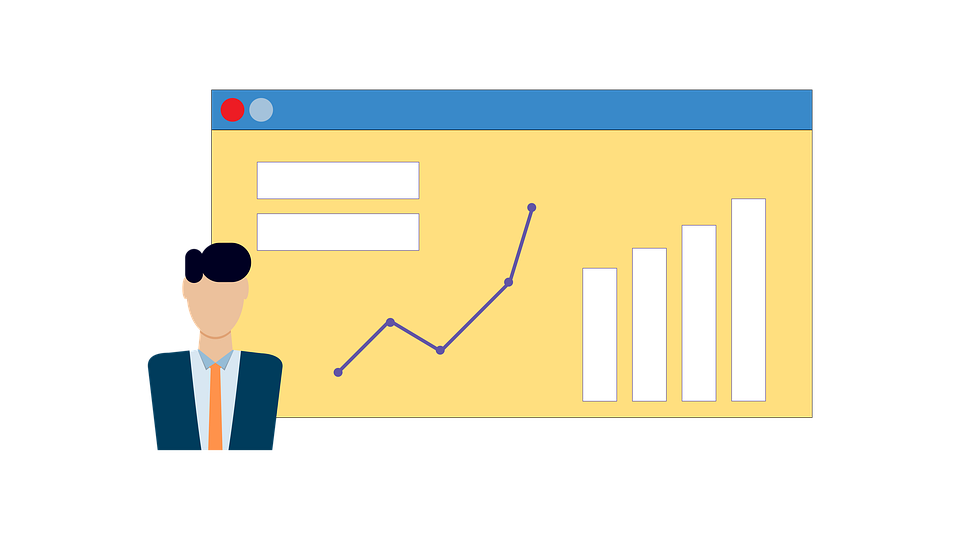Do you want to learn about the most critical, must-track SEO KPIs? Well, you’ve come to the right place!
Imagine investing in a visually appealing website with high-quality content that suits the needs of your target audience, product descriptions that appeal to your buyer personas, and top-tier SEO efforts to boost organic search. How will you measure the success of your efforts and demonstrate their value in a tangible manner?
The answer lies in tracking key performance indicators or KPIs!
KPIs are objective metrics that can help you measure the success of your SEO efforts. Analyzing the KPIs of your SEO strategy can help you fine-tune your efforts for effective positive results.
So, if you’re wondering how to track SEO performance, take a look at the following KPIs for SEO success!
4 Critical SEO KPIs You Must Track
Here are four vital SEO KPIs that you should be tracking to measure the success of your SEO efforts:
1. Organic Sessions
Organic sessions essentially entail an earned visit to your website from search engines, the actions taken by the user during their visit, and the exit of the said user from your website. If a user idles, their session is timed out after 30 minutes of inactivity. You can measure organic traffic directly in Google Analytics or use a refined tool to cross-reference it with other data points.
Growth in organic sessions or traffic is an essential SEO metric or KPI as it is your ultimate objective. If you want to boost the number of organic sessions on your website, create more relevant, credible content, titles, meta details, and CTAs. Also, focus on both off-page and on-page SEO and local SEO to boost your organic visits.
2. Leads and Conversions
Once a user lands on your website, you want to generate a lead and convert them into a customer. A lead is establishing contact with a potential customer, such as a phone call, newsletter signup, live chat session, registration for a service, etc. You need to track your leads across various dimensions, including demographics, mobile vs. desktop conversions, based on webpages, etc. You can also make improvements to your website based on where people drop off in the conversion process.
Leads and conversions are crucial SEO KPIs as they directly impact your business’s principal objective – growing your customer base and increasing your sales. To boost your leads and conversions, make sure your website is easy to navigate, make your CTAS readable and attractive, create an easy-to-move-through conversion funnel, and generate credible, valuable content.
3. Keyword Ranking
Keyword ranking tells you where your chosen keywords rank in popular search engines like Google or Bing. The higher your website ranks for high-volume keywords, i.e., terms or phrases that people frequently search, the better it is for your business. You can use a reliable online tool to track keyword rankings.
You will understandably rank higher for some specific keywords, such as your brand name or long-tail, niche-specific, location-based keywords. As for the other keywords you use in your website content, they will be a part of a long-term strategy to boost your visibility on SERPs.
Tracking your keyword ranking can help you improve your website traffic, leads, and sales. Make sure to keep an eye on your keyword ranking, as a significant drop in it could hint at a bigger issue with your website. Optimize your on-page (high-quality content) and off-page efforts (speed optimization and link building) to improve your keyword ranking.
4. Bounce Rate
Bounce rate is an essential SEO KPI that highlights the number of times when a user loads your website and exits it without performing any action. You can calculate it by dividing the number of non-interactive sessions by the total number of organic sessions. Always judge your website’s bounce rate by comparing it with the average bounce rate in your industry.
Bounce rate is a revealing KPI as it tells you if your webpages are satisfying a user’s search intent. When a user bounces back to the search result page from your webpage, it indicates that your content didn’t meet their search query or intent, and they considered it to be irrelevant. To ensure your bounce rate remains low, create content that matches the keywords you are using so that it ends up being relevant and helpful to your visitors.
Focus on the aforementioned SEO KPIs to measure the success of your optimization campaigns and efforts and see an increase in ROI, organic visitors, and customer retention. Get in touch with Marketing Tiki to keep track of your SEO metrics and overall performance.
